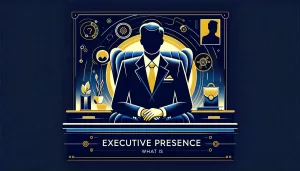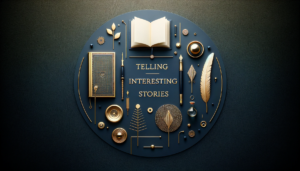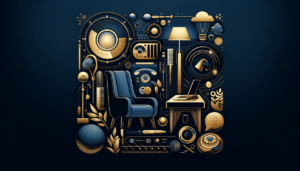Most people see philosophy as something extremely deep, complex, and non-functional in the present world. When you’re positioning yourself as a leader in your niche, building a personal brand philosophy may not seem as something relevant to your career.
However, The conquest of happiness, published in 1930 and written by Bertrand Russell, stands out from the rest because it gives you actual tips to face the everyday problems it proposes, and it can definitely be used to build a stronger personal brand.
You may ask yourself: why should I care about what this man wrote so many years ago? How is it actually going to help me?
Well, if you do, you might be able to understand way better how your mind works, shape your philosophy and personal identity and truly realize where your unhappiness is coming from. For example, envy, fatigue, anxiety and our internalized sense of sin are just some of the things we carry with us in our daily life that makes us miserable.
If you haven’t read the book, here’s a really short explanation of what it consists of: it first states that the modern man tends to be unhappy, and then proceeds to explain the reasons for the unhappiness. Finally, it talks about things, concepts and experiences in life that bring real joy to human beings.
Bertrand Russell was born in the year 1892 in England, and dedicated his life to studying different areas such as philosophy, mathematics and logic. He won the Nobel Prize for Literature in 1950, and, besides The conquest of happiness, he is also known for other books such as History of western philosophy, Why I am not a christian, The problems of philosophy and many more.
He was also involved in numerous social and political causes, and played an important role as an activist against nuclear weapons and war, as well as supporting women’s suffrage, racial equality, socialism, and many other controversial ideas for his time.
He died in 1970 at the age of 97, and has been remembered since then as one of the most influential philosophers in the 20th century.
Even though philosophy may not seem at first as something that could really help us with personal branding, in this article I will go through some points and recommendations Russell states in The conquest of happiness about how to live your best life, reach happiness, and know yourself thanks to a change of mindset.
After reading Bertrand Russell’s The conquest of happiness, I learned a lot about how I process events and feel emotions. This has helped me in my everyday life, but has also given me a deeper insight of myself and the things I’m capable of.
It’s important to know that a better understanding of yourself means a better understanding on how you can show your abilities to the world. In very little words, you could say that’s what a personal brand means! Keep reading to learn more about how to build a successful personal brand philosophy.
Contents
About creating your personal brand philosophy
About comfort in a state of misery
In chapter 2, “Byronic Unhappiness”, among other things, Russell explains we have grown thinking that misery and unhappiness is a normal state for life, when life actually is what drives you to enjoy things.
Many people escape and fear death, and wish for immortality. Nevertheless, there is the paradox of immortality: if we lived forever, things would lose their flavor and their reason to be.
Thanks to our mortal state, we can appreciate everything. Deep in our unconscious mind, we know we’ll eventually die, which means we have to do things, overcome obstacles and chase our goals. Our time is limited and that fact gives us a reason to get up in the morning.
I have always been someone who tends to focus on the bad things. I used to think “it is better to be mentally prepared for a bad situation and be surprised if things go well, than the other way around”. And even though this is totally acceptable for some situations, I discovered that if I thought that way every time, I would become sick sooner or later. And this chapter made me realize that.
Changing this mindset has allowed me to find more opportunities and inspiration, even if I don’t expect it. Now, I know bad things are supposed to happen, but we should always aim and work for better. Now, I know I should always enjoy life and appreciate it as a patch for growth which has an end because that’s the way it works.
Religion and spirituality in your personal brand
In almost every industry, religion will be a sensitive topic to talk about. However, when thinking about your personal brand philosophy, keep in mind your religion and/or your spiritual beliefs are an important part of you, because it shapes the way you perceive life, work and many other situations you could face.
In the same chapter two, Russell explains that atheism seems to be growing each year (remember this book was published in 1930! Imagine the numbers almost a century later), and Russell talks about a “godless universe” —which is related to Nietzsche—.
However, he also states humans may not know what atheism really means until we have known an universe without love.
“We have grown used to a Godless universe, but we are not yet accustomed to one which is loveless as well, and only when we have become so shall we realize what atheism really means”.
Spirituality is an extremely personal matter and it varies a lot depending on your education, your experiences, your cultural background, and much more, but I think this quote it’s really beautiful and it condenses how complex and wide religion really is.
For a long time, I thought I was 100% an atheist and resented religion. After reading this book for the first time, I understood how abstract spiritualism is and I learned to be more open minded. I now know that spirituality can be found in many things, persons and feelings, and religion it’s about feeling connected with your surroundings and having a deeper concept for life.
How to find intellectual pleasure in mundane activities
This book goes deep into the topic of pleasure, hobbies and recreation as a source of either frustration or true happiness. It can be shocking to think that the way you enjoy your free time is bringing you dissatisfaction in the long term, but it’s worth it to analyze it and recognize the effects those hobbies have had on you. Russell says:
“Men and women appear to have become incapable of enjoying the more intellectual pleasures”.
Physical pleasures are ephemeral, and may cause fatigue along time. Intellectual pleasures can often be renewed and will always aim for a greater level of satisfaction.
This doesn’t mean you have to run away from every physical pleasure, because they are also a part of life and can be totally enjoyable. However, this does mean that physical pleasures can’t be the only source of happiness you find, because they will eventually evolve in vice, addiction and immobility of character.
The activities that will give you real satisfaction for yourself are the ones that provide you with intellectual pleasures. At first glance, “intellectual pleasures” sounds like a lot of work! But besides the “obvious”, such as reading, creating art and meditating, one can find intellectual pleasures in many other activities.
You could engage in fascinating conversations with your friends and family, spend time with people you love, exercise, go on hikes, plan random trips, find creative ways to learn something new everyday, and find a hobby that motivates you and drives you crazy.
There’s this quote going around on the internet that says: “you need 5 hobbies in life: one to make you money, one to keep you in shape, one to keep you creative, one to build knowledge and one to evolve mindset”. These promote 5 different purposes, but they all seek a deeper and intellectual pleasure beyond the physical.
How to stop being scared of boredom
Russell states in The conquest of happiness that another of the causes of happiness in the modern man is boredom and how afraid we are of it.
“We are less bored than our ancestors where, but we are more afraid of boredom”. We can’t see boredom as a natural part of life, and we will engage in almost any kind of activity, no matter how harmful it may be to ourselves, in order to escape from that feeling.
It’s important to know that when I say “no matter how harmful”, I’m not talking about someone who commits crimes to keep themselves occupied. That could be possible, but it’s an extreme case. If we talk about more mundane activities, in order to keep ourselves out of boredom, we may overthink past or current situations, eat when we’re not hungry, and even start fights with friends or family without a reason.
This is because the fear of being bored serves as an excuse and a motivation to do something. The problem is that most of the time, the activity we engage in is not as beneficial or well-thought as it should be.
And I’m not necessarily saying we should always be reading books and doing complicated things 24/7. It’s actually really good to know boredom and work with it, instead of only fearing it. It’s okay if you don’t always have incredible plans and projects to work on, because life consists of highs and lows in every aspect, and the way we occupy our time is one of them.
Just as we need to know sadness to value the moments in which we’re happy, we need moments of boredom to value excitement and not get used to it.
How to deal with anxiety
In chapter 5, “Fatigue”, Russell explains how humans have a lifestyle that sentences us to a life full of mental fatigue.
This fatigue has plenty of causes, and one of the principal ones is that we have incorporated anxiety into our daily routines. It has become essential for us to be stressed about something, and we see suffering as the only honest way to eventually reach success and happiness (spoiler: that happiness never comes).
This is where you’ll find one of the most helpful tips Russell gives in this book —from my point of view—. He says that, if you’re suffering from anxiety due to being scared of something that might go bad in the future, the first thing you need to do is to come up with the worst possible scenario.
Once you have it, think about why, after all, even the worst outcome wouldn’t be that bad. What Russell wants to state by saying this is that we get stressed and anxious by daily and common problems that, even though they require our attention, most likely won’t cause the end of our world if they don’t go as planned.
I constantly think about this and it has helped me calm myself during stressful times. It’s not fair to ourselves to be constantly in a bad mood because of problems that will eventually work out for the best. Sometimes we can’t control our anxiety, but we should find ways to work with it and handle it in the best way possible.
Personal brand philosophy and Bertrand Russell
All the points I have touched during this article may seem really personal and not involved at all with what a brand means. However, having a strong personal brand requires you to know yourself and having your values and beliefs well established.
Reading non-fiction books and articles —and more specifically, reading philosophy— is a great way to make some introspection, shape ideas you may already have and take new ones from the authors you like the most.
Always remember: building a personal brand to show to the world is putting your essence for people to see. In order to do that effectively, you will need to know who you are.
For example, from this article only, you now know 5 things about me:
- I’m really conscious about the negative outcomes a situation could have and I’m working to be more positive.
- My sense of spirituality is really wide and I don’t follow traditional religions.
- I believe you can find intellectual pleasure in a huge variety of hobbies and I like to feed my passions through the activities I engage in.
- I see boredom as a natural part of life and, instead of fighting it, I try to find balance between calm and excitement.
- As a naturally anxious person, I try to be very conscious about the actual possibilities in order to be happier.
Imagine all the things you could learn about yourself by reading this book and many more with similar topics!
If you are eager to find your path and strengthen your professional career, reading more and building a personal brand philosophy will always be a great place to start.
I have read this book twice in my life, and each time it has helped me understand new things. As a person who loves philosophy, this is one of the few books that has clearly taught me ways to overcome actual problems and face real situations, which is something I really appreciate, and I’m sure you will too.
If you love to learn about history, philosophy, and other topics related to humanity and personal branding, don’t hesitate to check out our YouTube channel, where we constantly post about online marketing strategy and how to become a thought leader in your industry.





